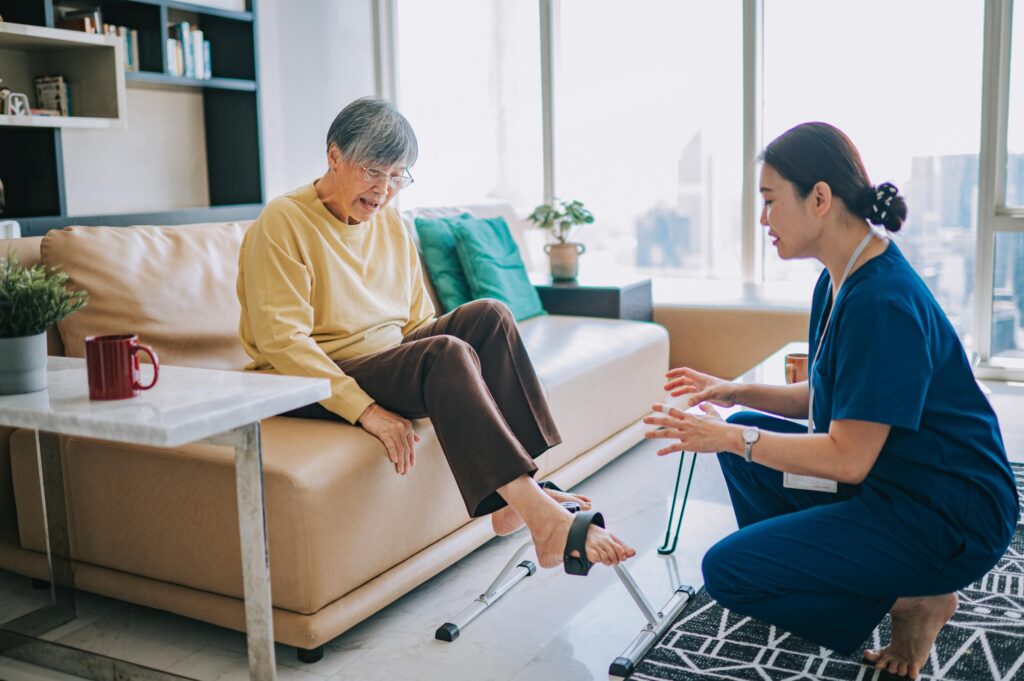It cannot be very simple to care for a loved one who is dealing with memory challenges, such as dementia or Alzheimer’s, but it still can be a very rewarding and fulfilling experience. Such a journey is going to be filled with unique moments that will include the joy of shared memories to the challenges of performing day to day routines. To provide a personalized memory care to them at home is going to be about creating a supportive environment that will be good for their individual needs in a way that it will help them maintain a sense of dignity and connection to the life they have always known. We will explore some effective strategies in this blog that can be utilized at home to support seniors with memory issues in a compassionate and thoughtful way
Create a Safe and Familiar Environment
The first priority should be to create such an environment at home in which the risks are avoided as much as possible, while at the same time providing familiarity and comfort. Safety of the seniors should never be taken lightly. Even simple modifications to the space, such as adding grab bars and non-slip mats and using good lighting throughout the home can improve it a lot. Familiar objects, photos, and furniture that are arranged in a consistent way will be helpful for reducing confusion. You can also use memory aids, like notes or labels on different objects around the house to help them remember. Making drastic changes to the layout of the home should be avoided because it can disorient them. And you should make sure that their living space is clean, organized, and clutter-free to contribute to a sense of calm and safety.
Routine and Structure
Establishing a routine can be very crucial for seniors with memory loss issues. A consistent routine provides predictability, as a result anxiety and confusion can be reduced, and the day will become more manageable for both the senior and the caregiver. Include regular mealtimes, activities, and rest in the routine. But it is also okay for the routines to not be too rigid, keep them flexible enough to adjust according to the senior’s mood and energy levels, but at the same time, consistent. Involve them in the creation of this routine, let them have a say in what their day looks like. This will help them feel more in control and at the same time provide mental stimulation which can be very beneficial for them.

Η Σημασία της Επικοινωνίας
Effective communication can be the most important aspect of caring for a loved one with memory loss issues. It is very important that you speak clearly, calmly, and slowly with them so they can have time to process it. And to reduce confusion, asking simple questions that require a yes or no as an answer can be great. The nonverbal aspects of communication should also not be ignored. A warm smile, gentle touch, and attentive body language can provide a sense of calm and convey love and understanding, even when it is hard to find the right words. Remember to always remain patient and to be an active listener; allow them the time they need to express themselves.
Reminiscence Therapy
Reminiscence therapy generally involves the encouragement of seniors to talk about past experiences, which are often triggered by memorabilia objects like photos, music, or notes etc. This can be incredibly beneficial for them, as it helps tap into the long-term memories that are usually more intact than the short-term ones. Creating a “memory box” where you keep memorabilia items for them to reminisce about can be very helpful. This could include anything from old photos and postcards to a favorite piece of jewelry. All of it can evoke memories and provide comfort.
Focus on Nutrition and Hydration
Seniors with memory loss may be susceptible to forgetting about eating or drinking their necessary meals. This can lead to nutritional deficiencies or dehydration. So, it is extremely important to make sure that they have regular and balanced meals and are drinking enough water throughout the day. A simple strategy to keep their nutritional needs intact can be to offer small and frequent meals using a favorite cup or plate, as it will encourage them to eat and drink more. Keep their specific dietary needs in mind, and provide them suitable meals in accordance to their dietary restrictions and needs.
Partner with 1st Care Community for Personalized Memory Care
At 1st Care Community, we can provide relief to you in the journey of caring for a loved one with memory loss. We have a team of compassionate caregivers who are trained to provide personalized and respectful in-home care that will improve their quality of life both externally and mentally. If you want to learn more about how to care for your senior loved one or you are looking for professional support for them, επικοινωνήστε μαζί μας σήμερα!


